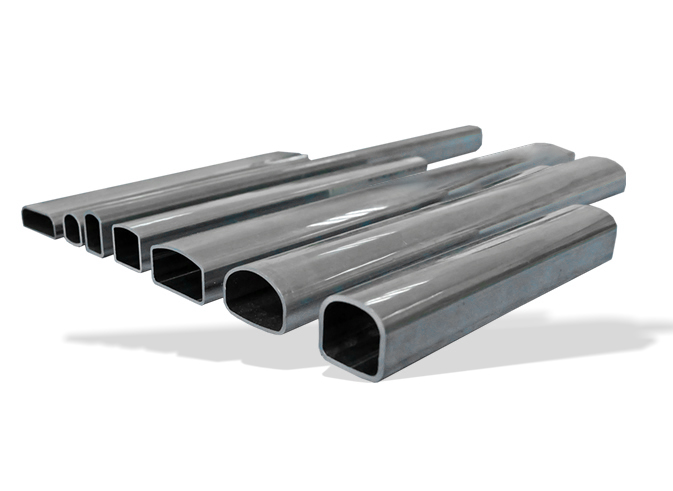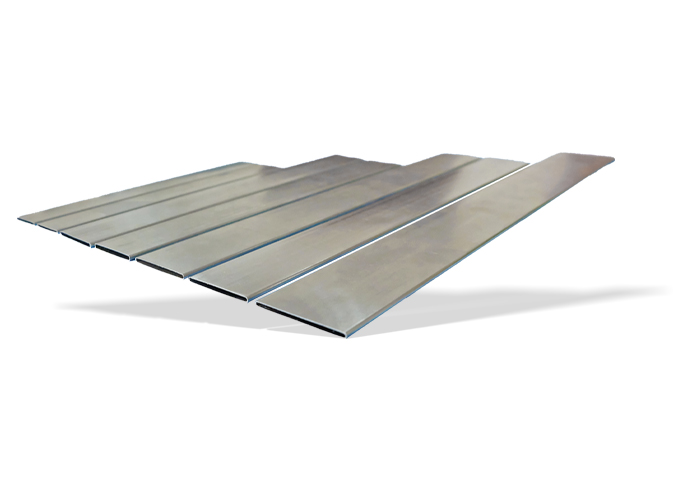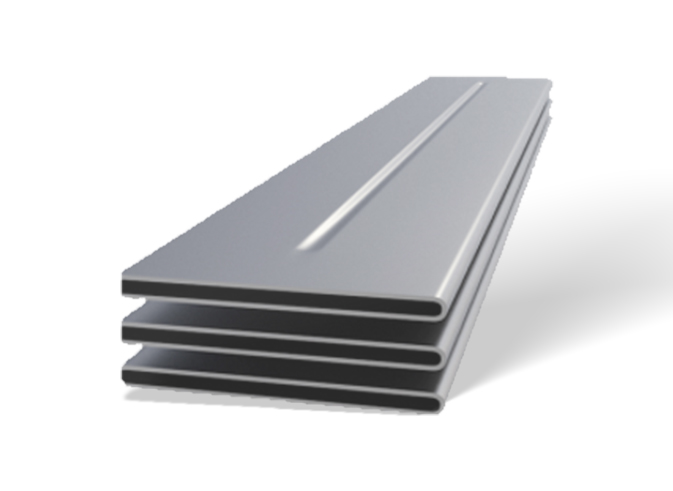-

Why is D-type pipe used in municipal engineering
In municipal engineering, the application of D-shaped pipes (pipes with a cross-section of "D" shape, usually one side is flat and the other side is curved) is closely related to their unique structural characteristics, which can solve the shortcomings of traditional circular pipes in specific scenarios. The specific reasons are as follows:
Learn more -

What are the structural characteristics of large cross-section multi-channel folding pipes
Large section multi-channel folding pipe is a special type of pipeline widely used in fields such as heat exchange and fluid transmission. Its structural characteristics are mainly reflected in section design, channel layout, folding form, and material combination, as follows:
Learn more -

What are the applications of microchannel flat tubes in the electronic device industry
Microchannel flat tube is a flat metal pipe (mostly made of aluminum, copper or alloy materials) with multiple small channels (usually with channel sizes ranging from 0.1-1mm) inside. With high heat exchange efficiency, compact structure, lightweight and other characteristics, it is widely used in the electronic device industry for heat dissipation systems. The specific application scenarios are a
Learn more -

What are the applications of square tubes in the energy industry
Square tube (steel pipe or alloy pipe with square cross-section) is widely used in exploration, mining, transportation, storage, and equipment manufacturing in the energy industry due to its high structural strength, good stability, high space utilization, and strong corrosion resistance (some materials). The specific scenarios are as follows:
Learn more -

Why do many industries use D-type pipes
D-type pipes (pipes with a cross-section of "D" shape, with one side being flat and the other side being curved) are widely used in multiple industries due to their unique structural characteristics. The core reason is that they can balance the mechanical properties of circular pipes with the functional advantages of flat structures, meeting the installation, fixation, and fitting needs in specifi
Learn more -

What are the applications of large cross-section multi-channel folding pipes in the power industry
The large cross-section multi-channel folding tube is a type of heat exchange element with a special structure. Its "large cross-section" and "multi-channel" design give it significant advantages in terms of thermal conductivity efficiency, fluid distribution uniformity, etc. It is mainly used in the power industry for scenarios that require efficient heat dissipation, heat exchange, or fluid tran
Learn more -

In which industries are square tubes used
Square tube is a type of steel with a hollow cross-section and rectangular edges. Due to its high structural strength, good plasticity, and diverse specifications, it is widely used in multiple industries. The following are the application scenarios and specific uses of square tubes in major industries:
Learn more -

What are the advantages of D-type pipes
A D-shaped pipe is a type of irregular pipe with a cross-section that is D-shaped (semi elliptical or flat). Due to its unique structural design, it has demonstrated significant advantages in multiple fields. The following provides a detailed analysis of its advantages in terms of structural features, functional advantages, and application scenarios:
Learn more -

Why do many factories use elliptical flat tubes
Elliptical flat tube is a type of pipe with an elliptical or rectangular cross-section, widely used in factory production due to its unique structural design, performance advantages, and process adaptability. The core reasons for factories using elliptical flat tubes are analyzed from multiple dimensions as follows: 1、 Heat transfer efficiency and advantages of fluid mechanics 1. Strengthen heat
Learn more -

Briefly describe the structural characteristics of hourglass tubes in building materials
Hourglass pipe (also known as hourglass drainage pipe or permeable pipe) is a functional pipe material used for drainage and permeability, commonly used in municipal engineering, landscaping, building foundation drainage and other scenarios. Its structural characteristics are mainly reflected in the following aspects: 1. Main structure: Multi layer composite design Inner skeleton: A suppor
Learn more
常熟國(guó)強(qiáng)和茂管材有限公司
Sinupower Heat Transfer Tubes Changshu Ltd.

400-100-7068
+
 微信號(hào):WEIXINHAOMA
微信號(hào):WEIXINHAOMA

 微信號(hào):WEIXINHAOMA
微信號(hào):WEIXINHAOMA


 CN
CN EN
EN 







 Wechat
Wechat
 Visit us
Visit us
 Please Call
Please Call